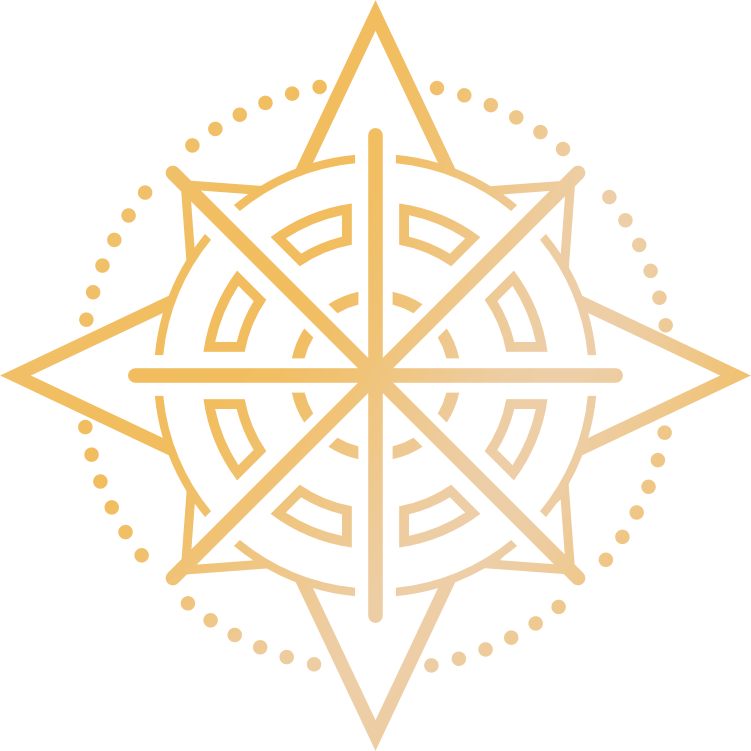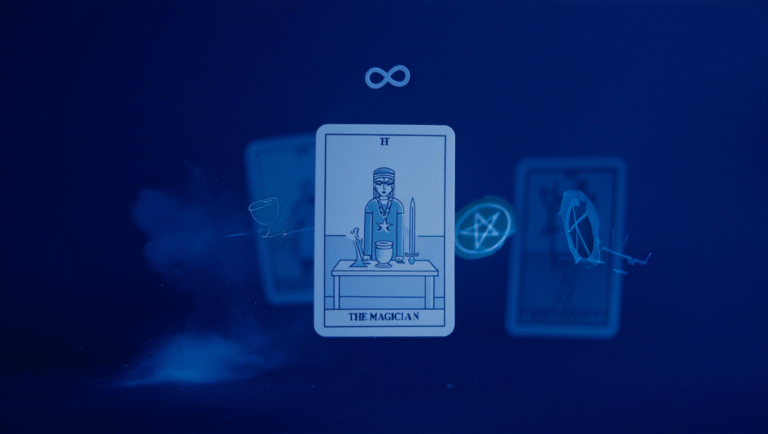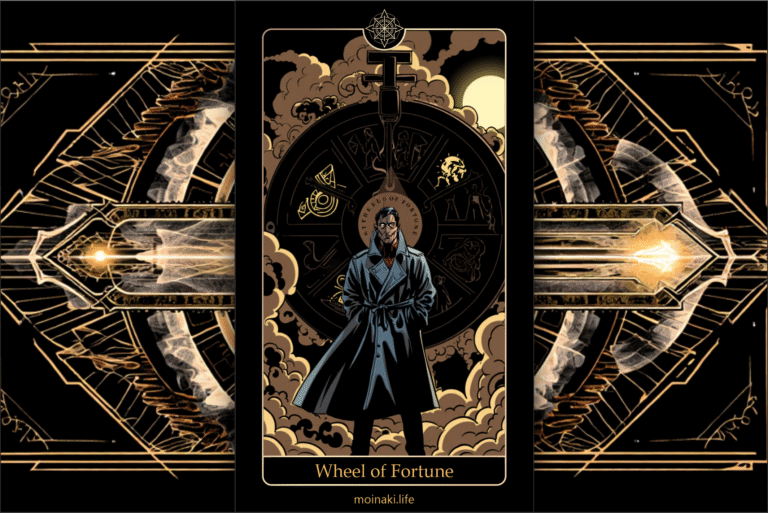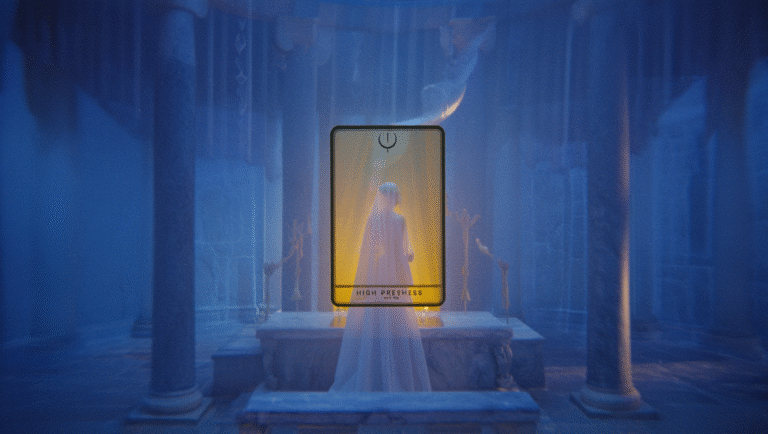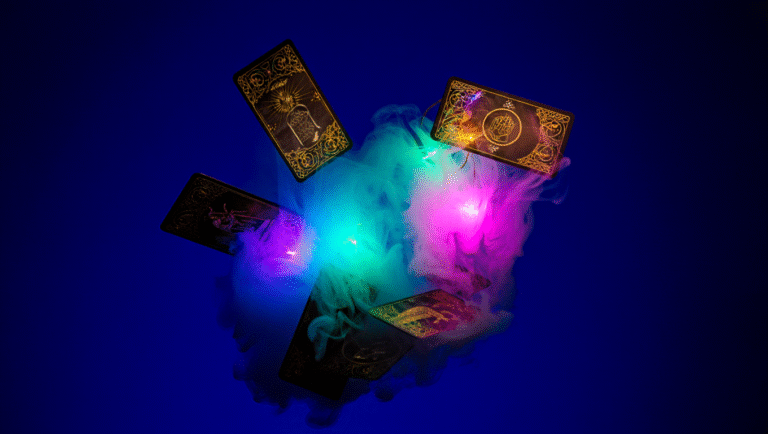Tarot for Conflict Mediation
Workplace conflict is something almost everyone has experienced, whether it’s a tense disagreement over email or a full-on team meltdown in a meeting. As much as companies invest in communication trainings, sometimes what’s really needed is a new perspective—or a gentle nudge to look under the surface. That’s where I’ve found tarot to be an unexpectedly practical tool, especially for mediating conflicts in a professional setting.
Tarot at Work: Not Just for Mystics
Let’s get this out of the way: I don’t use tarot cards to “predict” who’s getting the next promotion or to assign blame. In my practice, tarot is a tool for reflection and structured conversation.
Think of it as a set of prompts, designed to help people see different sides of a situation—without the pressure of direct confrontation. It’s about surfacing the unspoken, exploring motives, and building empathy. And yes, it can be done in 15 minutes (sometimes with surprising results).
“Tarot cards don’t magically resolve issues but can give a neutral space to explore what’s really going on.”
A Real-World Example: The Silent Stand-Off
Last year, I was called in to help with a conflict between two project managers—let’s call them Sam and Jamie. Their communication had broken down, deadlines were slipping, and their team was caught in the middle.
Neither wanted an official HR intervention. Instead, they agreed to try a “structured conversation.” Enter: the tarot deck.
15-Minute Tarot Mediation: Step-by-Step
Here’s exactly how I used tarot to help Sam and Jamie:
1. Set the stage (2 minutes)
- Private meeting room
- Deck of tarot cards (I used the Rider-Waite Tarot)
- Notebook and pen for each participant
- Ground rules: No “fortune-telling,” just using images as prompts
2. Shuffle & Draw (3 minutes)
- Each person shuffles and draws 2 cards:
- Card 1: “What’s my perspective in this conflict?”
- Card 2: “What am I not seeing?”
3. Silent reflection (5 minutes)
- Each person writes down their thoughts—no sharing yet
4. Guided conversation (5 minutes)
- Each takes a turn sharing their interpretation
- Focus on insights, not accusations
- Finish with: “One thing I’d like to try differently”
Tarot Mediation Spread: Quick Reference
| Card | Prompt |
|---|---|
| 1 | What’s my perspective? |
| 2 | What am I not seeing? |
| 3 (optional) | How can we move forward? |
Choosing a Deck for the Office
Not every tarot deck is suitable for the boardroom. Here’s a quick comparison of decks I’ve actually used in professional settings:
| Name | Key Feature | Size/Material | Price Range | Amazon Link |
|---|---|---|---|---|
| Rider-Waite Tarot | Classic imagery, easy to interpret | Standard, durable cardstock | $16–$25 | See today’s deal |
| Modern Witch Tarot | Diverse, contemporary art | Slightly larger, sturdy box | $24–$35 | Check price on Amazon |
| Light Seer’s Tarot | Gentle, intuitive symbolism | Matte finish, smooth shuffle | $21–$30 | See today’s deal |
- For beginners: Rider-Waite is familiar and less intimidating.
- For diverse teams: Modern Witch is inclusive and relatable.
- For sensitive topics: Light Seer’s Tarot feels gentle and non-threatening.
Pros, Cons & Who Should Try Tarot Mediation?
- Pros: Breaks conversational deadlocks, fosters empathy, easy to implement, no special training needed.
- Cons: Not everyone is comfortable with cards (offer opt-out), some workplaces might see it as “too woo.”
- Best for: Small teams, peer-to-peer conflicts, when HR feels “too formal.”
- Not ideal for: Serious HR/compliance issues, high-conflict personalities, anyone who’s strongly opposed to reflective exercises.
Quick Checklist: 15-Minute Tarot Mediation
- Neutral location
- Suitable tarot deck
- Ground rules
- Paper and pens
- Optional: Timer (keep it moving!)
Helpful Tools & Further Reading
- Rider-Waite Tarot Deck — classic, reliable, and accessible for all experience levels
- Light Seer’s Tarot Deck — gentle, modern, great for sensitive conversations
- Modern Witch Tarot official site
- How to Defuse Workplace Conflict (Inc.com)
- Conflict Resolution Tools (PositivePsychology.com)
“Sometimes, just having a new language to talk about conflict—like the imagery of tarot—can help people step out of old patterns.”
Final Thoughts
You don’t need to believe in magic to use tarot for conflict mediation. All you need is a willingness to pause, reflect, and approach tough conversations with curiosity. The cards are just a tool—a surprisingly effective one, in my experience, for helping colleagues see each other as humans, not adversaries.
This post may contain affiliate links. If you purchase through them, it won’t cost you extra, but it helps keep this site running.
